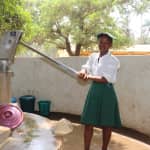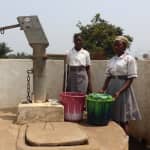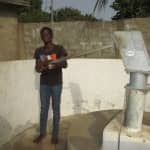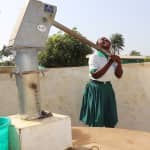Stories from the Field
As we work to provide water, we're committed to helping people like you meet your global neighbors and to realize that we all share the same basic needs. We hope to break down stereotypes and the false distinctions between the so-called winners and losers, rich and poor, the needy and charitable, by introducing you to the people we serve with the respect and admiration they rightfully deserve.
These are stories of hope, told in the words of those who carry out this work every day - our friends in the field.
Tholmossor, Amputee Camp New Site
"Truly, it was not easy for us. It was one of the worst times I ever had. The pump was malfunctioning, it gets dried some months, and most older people are sometimes hard on us. These are the things that cause us to late for school most times," said 15-year-old Adama. "Previously, we were not having pure, safe not to even talk about sufficient wat...
DEC Makassa Primary School
"It was challenging to get water in the school in the dry season when the pump gets dried. The student will go all the way to the stream to get water for their classrooms, which sometimes leads them to be late for classes. Even in the previous pump, it was hard to get water during the dried season because there was not sufficient water in the pump ...
Rowana Junior Secondary School
"Now we have pure and safe drinking water point at the shortest distance and easy access. This has impacted my life greatly in the area of maintaining the hygiene and sanitational aspect of life," said Mariama Bah. "It has helped in maintaining the proper sanitation in and around of the water point. It has constantly helped in the availability of ...
Kasogha, 8 BB Kamara Street
"It was not really easy for this community because most of the people in this community get water from this well. Actually, it was not sufficient to supply the community. Sadly for us school-going children, we suffer a lot in the morning in other to fetch water, most time, we are even late for school," explained 17-year-old Sheiku. "It's perfectly...
UBA Senior Secondary School
"In the past, it was not easy for us to get water for the classes and toilet, unless we had to go some distance off school in other to get clean water," said Kadiatu, a 17-year-old student. "We are all happy for the water project been completed in our school. We no longer miss classes, there is always water in our classrooms and also the toilet. T...




